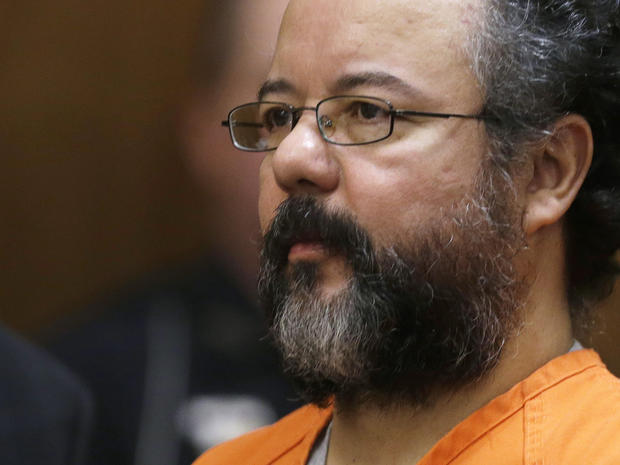Ariel Castro: Inmate suicide expert says "It was only a matter of time"
(CBS) When suicide prevention expert Lindsay Hayes learned that convicted Cleveland kidnapper and rapist Ariel Castro had reportedly hanged himself in his cell Tuesday night, he wasn't surprised.
PICTURES: Disturbing new photos from inside Castro home
"It was only a matter of time," Hayes, the director of the National Center on Institutions and Alternatives and author of the National Study of Jail Suicide, told CBS News' Crimesider.
"Someone who had been convicted of such a heinous and despicable crime, who was going to spend the rest of his life in prison - I wasn't surprised," said Hayes.
Castro, 53, was serving a life sentence plus 1,000 years after pleading guilty to kidnapping three Ohio women and holding them captive in his home for nearly a decade. Castro beat, raped and starved the women, causing one to miscarry, and fathering a child with another.
At Castro's August 1 sentencing, one of his victims addressed the court, saying the death penalty would have been "so much easier" than life behind bars.
"You deserve to spend the rest of your life in prison," said Michelle Knight, 32.
In May, CBS reported that investigators found a note in Castro's home in which he talked about suicide and referred to himself as "a sexual predator." The note was reportedly written in 2004.
The Associated Press reports that Castro had been taken off suicide watch in June. At the time of his death, he was in a single cell under "protective custody" at the Correctional Reception Center in Orient, Ohio, and was reportedly being checked on every 30 minutes. Hayes told Crimesider that protective custody is typically used to keep inmates from being harmed by other inmates.
Suicide watch is much more restrictive. Hayes said that inmates deemed suicide risks have their clothing and possessions taken away, wear smocks made of material that is difficult to tear and are usually either under 24-hour observation or being checked every 15 minutes.
"You can't keep someone on suicide watch for the rest of his life," said Hayes.
Dr. Erik Roskes, a clinical assistant professor of psychiatry at the University of Maryland School of Medicine and an expert in prison mental health issues, said that in Castro's case, prison officials may have been stuck between a rock and a hard place: he was in a single cell to keep him safe from inmates who might want to harm him, but single cells are, themselves, a risk factor for suicide.
"I don't know if they had a good option," Roskes told Crimesider.
According to Hayes' study of suicides in county jails between 2005-2006, 93 percent of the inmates who killed themselves died by hanging. The study found a "dramatic" decrease in jail suicides since 1986. Still, county jail inmates are three times more likely to kill themselves than the population at-large.
Hayes said that in the wake of Castro's death, the prison will likely open multiple investigations to determine whether they could have done anything differently that might have prevented his suicide, including looking back at his behavior in the days leading up to his death, asking whether they could have asked more questions about his state of mind, and whether they missed signs he was planning to kill himself.
Typically, inmates are placed on suicide watch either because they have expressed suicidal ideation, or as a preventative measure. But Dr. Roskes said that it can be difficult to tell whether an inmate telling prison health officials that he is feeling better is actually less depressed, or planning a suicide and wants less supervision.
"Castro probably presented a pretty high ongoing risk of suicide because of the hopelessness of his situation," said Roskes.
Complete coverage of the Cleveland kidnapping case on Crimesider

